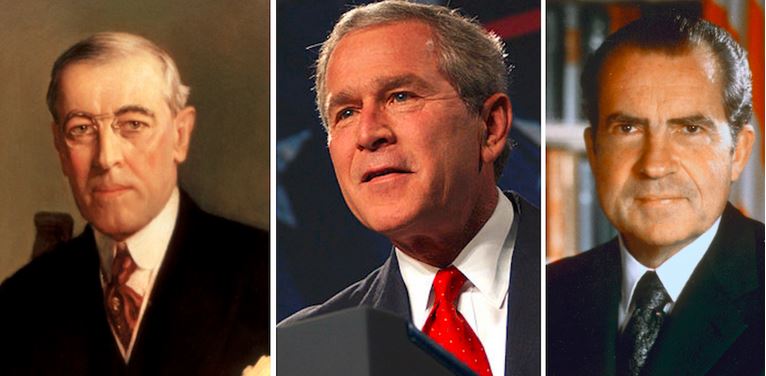With Each Crisis,
POTUS Becomes More Powerful, and Partisan
This has been the pattern: the Executive assumes new
power that is never fully annulled when the threat
ends.
By Rick B.
Larsen

April 12, 2020 "Information
Clearing House" -
The COVID-19 crisis
offers unprecedented insight into the delicate
balance between free market solutions and government
overreach. We see it today in the admittedly tricky
balance between
personal freedom,
public health and economic survival.
But the real underlying problem may be more
significant than it appears.
Alexander Hamilton
repeatedly warned against the reactive ingredients
of populist sentiment during times of crisisand
political ambition. He said when people are in
crisis, they will allow – perhaps demand – expanded
government. And government will gladly respond.
The problem is,
government rarely contracts once the crisis is
over.
Nowhere is this
concern more pronounced – and more demonstrably
imbalanced – than in the office of the presidency.
And it did not begin with Donald Trump.
If you sense an
unsettling
partisan quality
to the federal government’s response to the current
crisis; if your mind is boggled at the
gamesmanship
occurring while lives and economies are at risk; if
Congress seems unusually hyperpartisan and
unaccountably mired in
turmoil
while
states seem to be
competing
for resources on political grounds; and if it all
seemingly enables the president to act
autonomously – even
competitively,
trust your
senses.
And
look to history to understand.
President Woodrow
Wilson superseded Congress by using an Executive
Order to arm U.S. merchant ships,
a move that which ultimately led the U.S. into World
War I. The Great
Depression and World War II, combined with a
Democratic majority, enabled FDR to enact temporary
programs which became the basis of today’s welfare
state. As his programs expanded from emergency aid
to entitlement, today they absorb more than
60 percent of the
federal budget
and—many experts say—have created disincentives that
actually
increase dependency.